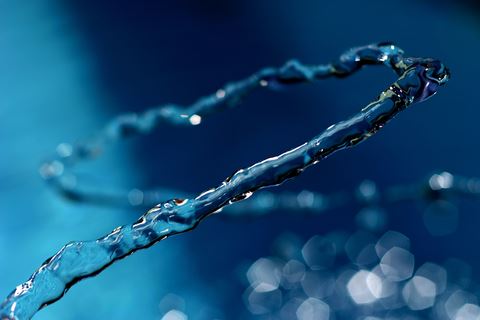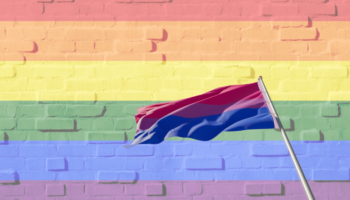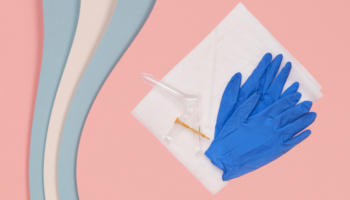Let’s just say I very much believe in female ejaculation, or squirting, as it’s often called. I’ve been ejaculating since I began having sex at the age of 15, but that’s not necessarily common. So what is female ejaculation? Or is it just pee? Here we'll answer this and other questions about squirting.
Documentation of female ejaculation has been discovered from as early as 500 B.C.E. in Chinese and Indian sex advice books. Glands around the female urethra that emit prostatic-like secretions were known to physicians and philosophers in ancient Greece, according to Dr. Rebecca Chalker, author of The Clitoral Truth. Even Aristotle wrote about squirting.
De-stigmatizing squirting is so critical because there are people who most definitely have experienced it or experience it regularly. Those who claim that female ejaculation isn’t real fail to validate those people’s experiences. It would be great if everyone could stop treating female ejaculation like a myth. There's ejaculation (the fluid that comes out of a penis), and then there's FEMALE ejaculation. My hope is that one day, we might acknowledge equal opportunity squirting. Female ejaculation is known by many names. Terms such as fejac, squirting, gushing, lady cum, and wet orgasms all refer to the release of fluids from a woman, or person with a vulva, during sex play. Ejaculation doesn’t necessarily coincide with orgasm, but it can be a fun addition. Beverly Whipple and John Perry are some of the top researchers and proponents of female ejaculation. They have hypothesized that squirting evolved to combat urethra and bladder infections. They argue that many secretions and fluids produced by the human body, like saliva, tears, and male ejaculate, have compounds that inhibit the growth of bacteria.
Many people wonder if squirting is urine. The answer? No, no, and no again. You are not wetting the bed during sex (unless you’re into urolagnia and are wetting the bed intentionally). No, squirting is not pee. People are going to argue with me, but I’ve squirted. I’ve been with partners who squirted, I’ve talked to lots of people who have squirted. I am confident that it is not urine. If you’ve ever peed your pants, you know that it has an odor. If you’ve ever experienced female ejaculation, you’ll know that it’s not the same odor.
That said, the science around squirting is a bit iffy. Discovery recently published a study with a sample of seven participants "proving" that female ejaculation is just pee. I disagree, and I’m not just throwing science out the window here. Seven people is not a statistically significant sample size. And, while this study says that the squirting fluid is urine, there have been other studies that have determined that it is not. A couple of those other studies are cited in The Clitoral Truth, but unfortunately, host similarly small sample sizes. In one of the case studies featured in Clitoral Truth, a female participant peed on the bed, they tested it for urine, and then she ejaculated on the bed, and they tested the secretions for urine as well. The conclusion? The ejaculation was not urine. Another study had a sample of 24 participants: six of whom ejaculated. These researchers announced at the Thirteenth World Congress of Sexology that female ejaculation is absolutely real. Unfortunately, many people seem terrified about female sexuality in general. For decades, sexual pleasure was considered nonexistent for women, so why are we surprised that female ejaculation is considered in much the same way? To help de-stigmatize squirting, it is important to understand it as an organic, scientific process:
Female ejaculation is released from up to thirty or more tiny glands in the urethral sponge or female prostate. This is the spongy erectile tissue surrounding the urethra. The urethral sponge is on the inner wall of the vagina, and is often referred to as the G Spot. I’d argue that this portion of the vagina is not just a spot. It’s a whole complex system that is part of the larger clitoral and vaginal network. Did you know that the clitoris is actually made of eighteen different parts?
Female ejaculate is created by the female prostate and released through the urethra. This is why studies like the ones mentioned above may demonstrate that female ejaculate tests positive for urine. There are likely traces of urine in the ejaculate, as both are released through the urethra. The terms are often used interchangeably, but that’s not always technically accurate. Female ejaculation is the release of fluid from the vagina during sexual activity, and can range from droplets or spritzes to cups or puddles of fluid.
Why does the amount of fluid vary so much? It might have to do with how turned on you are, or how comfortable you feel. "There may be a number of reasons for the huge differential in the amounts of female ejaculate. Some women may simply have more, or bigger, glands than others, or their glands may normally produce more fluid, the way some people sweat much more than others," explains Dr. Chalker. Unless you are in pain before during or after squirting, don't worry about whether something is wrong. Squirting is a healthy, normal procedure of some people's sex lives. If the fluid isn't clear (if there's traces of blood, for example) or if it has a strong, fishy odor (that smells different from what you're used to), these may be signs of infection, and you may wish to consult a doctor. Otherwise, there is absolutely nothing wrong. Remember, there’s also nothing wrong with not ejaculating. We want to hear from you. What questions do you have about squirting? What have been your experiences with female ejaculation? Do you think that it’s pee? Have you been either empowered by or shamed for squirting? The only way we can inspire more research is to forge ahead with this conversation. Stay tuned for tips on how to ejaculate, if that’s what you’re into.





